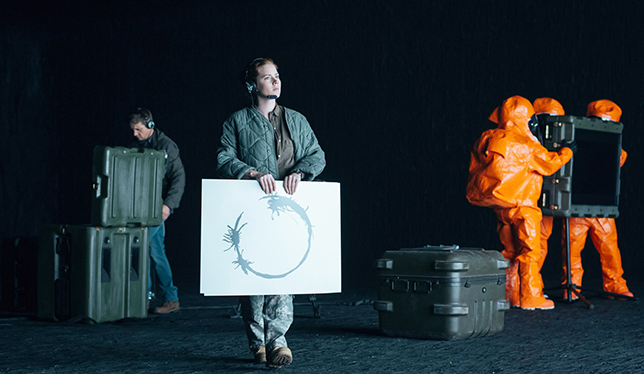Imagine this: strange spacecraft, under alien command, hover in the sky in strategic locations around the globe. Little is known of their intent. National governments and international organizations struggle to determine what comes next. They marshal equipment, military hardware and a bevy of top researchers to scientifically analyze everything that can be known about the new arrivals, and prepare for a potential attack.
This is the plot of the blockbuster movie Arrival, directed by acclaimed Québécois filmmaker Denis Villeneuve and recently nominated for eight Academy Awards, including best picture, best director and best adapted screenplay (spoiler alert: if you haven’t seen the movie, now may be the time to skip down to the final paragraph). Among the many twists that wind their way through the course of this two-hour epic, one is perhaps most surprising of all: the world is saved from the alien invaders, but hardly as a result of the technological marvels of advanced science. Rather, it is thanks in part to insights provided by humanities research, and specifically the work of a dedicated linguistics professor.

Off screen, the film’s authenticity owes a special nod to Jessica Coon, an associate professor of linguistics, SSHRC-funded researcher and holder of the Canada Research Chair in Syntax and Indigenous Languages at McGill University, who advised on the script and whose books even ended up in the movie. Talk about Canadian content.
On screen, the official marching orders for our film heroine, Professor Louise Banks, played by Amy Adams, are to decode the newcomers’ language and determine in the true spirit of investigative science, as quickly and efficiently as possible, the aliens’ intent in visiting Earth. Based on her years of study and research, the skillful linguistics professor knows better, however, than to pursue such a simplistic course of action in the face of so many unknowns.
Borrowing from psychological theory, Professor Banks also understands the complex, symbiotic relationship that exists between language and thought, and the need to be able to “think like them” to truly decode a speaker’s intended meaning. Throwing aside her protective gear, she engages directly with the aliens on a personal level, using written language to connect with the visitors.
Using “successive approximation,” Professor Banks is able to decode the alien language bit by bit and, in the process, rewire her own human thought processes to work more like those of the visitors. Only in this way is she able to discover their true purpose in coming to Earth, and to make a startling discovery that changes humankind forever.
Science fiction? You bet. But, only the part about the alien arrival. The “science” of linguistics, and of much of the humanities and social sciences, serves us every day by helping us decode one of the most complex systems we already know exists in our universe: human society.
Whether by promoting understanding to tackle seemingly intractable challenges, informing the development of sound public policy, or delivering on the promise of new technological innovations, the human sciences are indispensable in creating healthy, successful societies. And, possibly, in saving them.
Dr. Hewitt is president of the Social Sciences and Humanities Research Council.